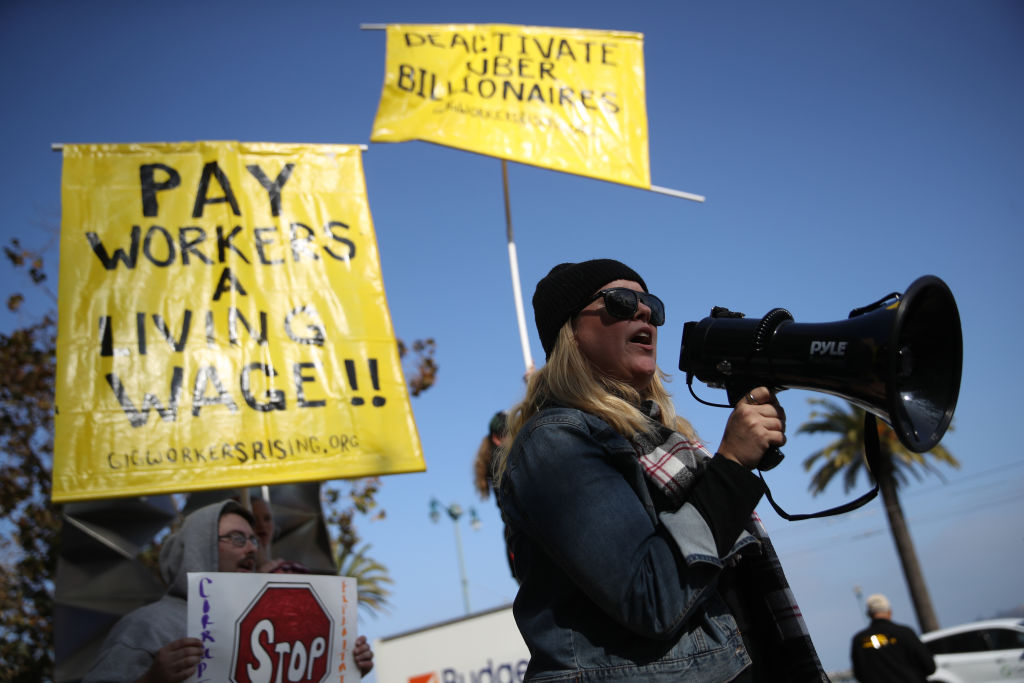Top US, EU trade chiefs ‘in constant contact’ after Trump tariff reprieve
Trump and von der Leyen’s Sunday call has placed “a new impetus” on trade talks.
Europe’s trade commissioner shared phone calls with U.S. Commerce Secretary Howard Lutnick and Trade Representative Jamieson Greer on Monday as both sides of the Atlantic seek to reach a trade deal to head off President Donald Trump’s sweeping tariff threat.
“The @EU_Commission remains fully committed to constructive and focused efforts at pace towards an [EU, U.S.] deal,” Maroš Šefčovič wrote on X. “We continue to stay in constant contact.”
The detente came after Trump lashed out at European negotiators last Friday, promising 50 percent tariffs starting at the beginning of June as punishment for “our discussions with them … going nowhere.” But a Sunday phone call with European Commission President Ursula von der Leyen led Trump to push back the tariffs start date from June 1 to July 9 — which significantly calmed the markets by Monday morning.
Still, not everyone involved in the negotiations is projecting positivity this soon after Trump’s Friday ultimatum.
“It’s irritating, and ignorant. Self-sabotaging, drivel,” said one EU official granted anonymity to discuss sensitive negotiations, describing the back and forth. “Do you need greater proof that talks are going nowhere than this nonsense?”
But the Sunday call added “a new impetus” to negotiations between the two sides, Paula Pinho, chief spokesperson for the European Commission, said at a Monday press briefing.
“And we will take it from there,” Pinho said. “It’s positive to see that there’s engagement also on the level of the presidents and from our side, we always said that we were ready to make a deal.”
European Commission spokesperson Olof Gill reaffirmed the Commission’s belief in a zero-for-zero strategy, which would see both sides scrap their industrial tariffs, as “a very attractive starting point for a good negotiation.”
In the meantime, the EU continues to work on a list of potential countermeasures in case talks with the White House on a deal fall through, Gill said at the press briefing.
“As well as talking to our member states, we’re talking to industry and other stakeholders that might be interested in this to shape a final list of potential countermeasures,” Gill said. “We need to repeat in all stages that this is preparatory work we’re doing in the event that negotiations don’t work out, which is our top priority, always has been.”
Ari Hawkins contributed to this report.




















:quality(85):upscale()/2023/10/03/668/n/1922283/1f15c8a9651c2d209e5eb5.32783075_.jpg)
:quality(85):upscale()/2025/08/14/650/n/1922283/470aeb83689df49cdc1bb6.14084110_.jpg)
:quality(85):upscale()/2025/08/13/775/n/1922283/3c0cbead689ccd0c422644.10221678_.png)
:quality(85):upscale()/2025/01/08/844/n/1922398/cde2aeac677eceef03f2d1.00424146_.jpg)
:quality(85):upscale()/2025/07/10/708/n/1922398/8fe2782e686fe372b38bf8.29984296_.jpg)

















